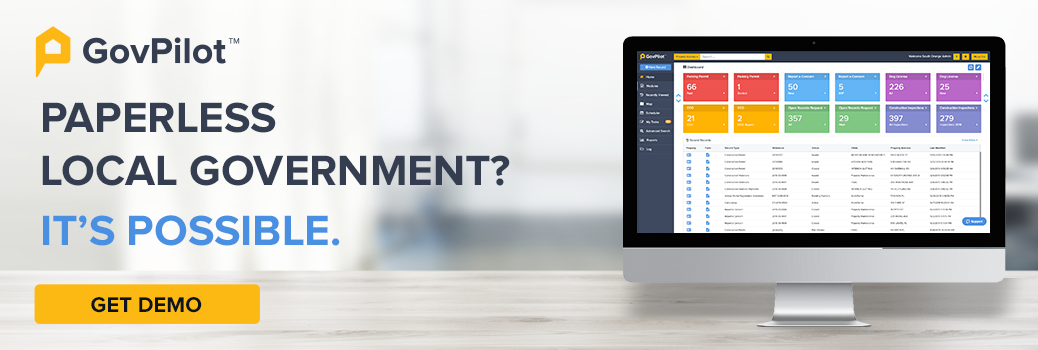After a year of lockdown, who doesn’t need a vacation? As American adults continue to get vaccinated, there has been a sharp increase in travel as summer 2021 approaches. Even before the pandemic the way people travel had shifted from staying in a hotel with hundreds of fellow guests, to renting out a private home that could be shared only with family members or friends.
For many, staying at a hotel has become a thing of the past as short-term vacation rentals booked via applications like AirBnb and VRBO have risen in popularity. As a result, towns and smaller cities well suited to host vacationers are reaping the benefits, as they draw in crowds that spend money at local businesses.
If your local government isn’t encouraging constituents to rent out properties and rooms for short-term rentals, why not? Though it can be challenging to iron out the details, follow along to better understand the steps to success and the benefits, as well as some of the challenges that come with allowing short-term rentals in your community.
What is a Short-Term Vacation Rental?
A short-term rental (often known as an STR) is a house, apartment, or even a single bedroom that is rentable for less than 30 days.
While these types of rentals have existed for quite some time, the creation of digital applications like AirBnb and VRBO that make it easy and safe to book a place to stay have resulted in skyrocketing demand for short-term vacation rentals.
How Do Short-Term Rentals Benefit Local Governments and Their Communities?
Encouraging constituents to turn their properties into short-term vacation rentals can be beneficial for the whole community.
Here are some of the ways STRs can pay dividends for you and your constituents:
- Increased earnings for constituents - depending on the location, property owners can make upwards of several thousand dollars a month by renting to vacationers. On average, the typical AirBnb proprietor earns $924 a month (which is relatively low in places with hot attractions like a beach or ski resort)
- Increased earnings for businesses: What do people like to do on vacation? Eating, drinking, shopping, and checking out noteworthy attractions are staples for every trip. That means the vacationers staying in your neighborhood will eat in nearby restaurants, shop at local stores, and boost the overall economy substantially.
- Increased revenue for the local government: Increased profits for local businesses and STR owners means your local government will get it’s piece of the pie as a result of taxes. A boom in travel will give you money to improve on infrastructure and generally improve the lives of everyone that lives in your neighborhood permanently.
- More room for fun events: Many areas have failed to host exciting events historically because they don’t have hotels or places for travelers to crash. Now, with STRs there will be an opportunity for more events in your neighborhood that will draw in a crowd and increase revenue.
- Free publicity and PR: If more people visit and enjoy your town than ever before as a result of increased lodging availability, you can be sure that many of those people will return and will encourage friends and family to do the same.
What Challenges Do Short-Term Vacation Rentals Pose for Local Governments?
Short-term rentals come with their fair share of challenges for a local government.
Here are some of the issues that arise with an uptick in STRs in your community:
- Partying and Safety: We’ve all heard the nightmare stories from places like Florida when spring break rolls around. The same can happen in your community if not careful. Code Enforcement is critical for issues ranging from noise violations to occupancy and fire hazards. Regulations need to be enforced to prevent underage drinking and to protect full-time constituents from dealing with noisy partiers next-door.
- Fewer housing options: If too many properties in your community turn into STRs, there will be a lack of full-time housing available which can drive up prices for residents and make the American Dream of homeownership harder to achieve. This poses a serious challenge for anyone looking to move into your community full-time.
- Gentrification: With short-term rentals becoming a potentially lucrative income option for property owners, the fabric of neighborhoods across several cities have been transformed as buyers have snapped up homes with the sole intention of renting them out. This has raised property valuations and in some neighborhoods forced out lower-income households from neighborhoods with vibrant histories.
- Holding property owners accountable: Applications like AirBnb and VRBO keep their users’ information private, meaning that if the local government isn’t monitoring short-term rentals efficiently, STR owners will bend the rules and avoid paying the full amount of taxes they owe.
What Are Common STR Rules and Regulations at the Local Level?
In order to minimize the negative impact of short-term rentals, setting clear short-term rental guidelines and enforcing local ordinances is a must.
While regulations at the local level vary by town / location, here are common policies implemented by local governments:
- Business permits and licenses: Like any business type, short-term rental owners are required to file a permit for their vacation home. In most places, a short-term rental license should be required as well, and will enable local governments to generate tax revenue from rental properties within their jurisdiction. GovPilot enables local governments to accept and process digital Certificate of Continued Occupancy and Rental Property Registration through its Code Enforcement Software.
- Cap on rental properties: In communities with limited housing availability, the right solution may be to put in place a cap on the number of homes that can legally be used as short-term rentals. This will keep home prices affordable for residents and ensure that neighborhoods remain a true community of locals rather than be overrun by transient visitors.
- Building and housing standards: Make sure that modifications to rental properties are approved by your local government. Set rules on health, safety, and sanitation to ensure guests from out of town are living in suitable conditions, and utilize cloud-based inspection software like GovInspect to provide fast, efficient property inspections.
- Ban on parties: Airbnb officially banned parties from being hosted at their short-term rentals. That said, without proper enforcement, these rules are bent all too often. You’ll need to communicate regulations with property owners to ensure that these rules are followed, or enforced by local authorities if not.
How Can Local Governments Enforce Short-Term Rental Regulations?
To make short-term rentals work in your community, it is essential that the regulations in place are taken seriously by property or home-owners renting to vacationers. Luckily, with code enforcement software, it has never been easier to inspect, certify, and monitor short-term rentals.
Code enforcement software uses digitized forms, so that entrepreneurial constituents can conveniently register their rental homes from a laptop or cell phone. Once a property is registered, the government can manage inspections, certifications, tax collection, and enforcement, ensuring that the policies implemented by your community are followed and public health and safety is prioritized.
To learn more about how code enforcement software can help your community flourish with short-term vacation rentals, schedule a consultation.
Short-term Rentals FAQ
1. What is a short-term rental property?
A short-term rental (often known as an STR) is a house, apartment, or even a single bedroom that is rentable for less than 30 days.
2. Why are short-term rentals popular?
Short-term rentals through online companies like Airbnb and VRBO have become popular in recent years because it offers an easy way for home owners to make passive income either when they are not home themselves or year round. Travelers are drawn to short-term rentals because they provide the feeling and amenities of home - such as a backyard or kitchen - that hotels often do not. As the world emerges from the COVID-19 pandemic short-term rentals are expected to maintain their popularity as travelers seeks more private lodging, away from other travelers as would be found in a large hotel.
3. Should short-term rental properties be regulated?
Regulation of short-term rental properties is critical for public health and safety as well as revenue generation for local government and the general viability of a neighborhoods. Code enforcement officials must be aware of properties occupied by owners or by temporary guests to ensure the safety of visitors and community members alike.
4. Why should short-term rentals be encouraged?
Short-term rentals are a fantastic way to drive revenue for local governments, local businesses, and property owners (constituents). With a sizable pool of short-term rental options available, a municipality can become an attractive destination for vacation, business meetings, or events such as conferences or weddings. With new visitors arriving regularly, local businesses and attractions will stay busy.
Sources:
https://www.airbnb.com/help/article/961/what-regulations-apply-to-my-city
https://www.lodgify.com/blog/laws-licenses-taxes-short-term-rentals/










